The situation confronting all the Western peoples today presses ever more individuals to pose themselves questions, the responses to which must be sought by deepening our investigations of the historical and cultural causes which, for nigh on a century, have carried the White Man to a state of complete devitalization.
For decades now, and centuries still before that, the White peoples, and among them various political and religious factions, have fought fratricidal wars which served more or less visible economic, financial and political interests, and which sought every possible objective other than the conservation and the strengthening of those very biological, ethnic and cultural fundaments which came thereby to exterminate one another. French against Germans, English against Irish, Germans against Russians, Americans against Europeans, for the most divers causes and ideologies, but ever and always bringing millions of White men and women to shed their blood in the fields of battle, to burn alive in bombardments, in hatred of their neighbours, without ever obtaining from this a real resolution to the problems that they hoped thereby to address. It was ever the sons of Rome, of Barbarossa, of William the Conquerer, of George Washington, of General Lee or of Peter the Great to throw themselves to the assault, heedless of their own demise; it was these men to die in atrocious conditions or in prisons, while the bankers and the businessmen counted up their earnings in the Exchange, sipping champagne in the salons of London and Wall Street. Let us imagine, only for an instant, if from the Middle Ages up to today – that is, from that time anyone first began to dream that there might exist a foundation for the unity of European culture – let us imagine that the Whites had not slaughtered each other, but rather, following a common path, had busied themselves with the joint cultivation of all their potencies and local wealth, protecting one another and discovering new lands, at whose luminous borders they might build the lighthouses of Civilization to shine forth.
Certainly, there have been examples of this, as in Lepanto, when Europe found itself standing against the Islamic tide. The Crusades, too, quite beyond their Catholic underpinnings, displayed an ideal common tension which was only superficially defined on a religious basis. In reality the Knights of all of Europe, of the North and the South, of the West and the East, felt within themselves the urge to defend their lands and their women from peoples and cultures which were not assimilable; and to this very day, in the south of Europe, where these peoples were able for a time to plant themselves, their expulsion and the reconquest of liberty are recalled with festivals and celebrations, banners and symbols. Some people forget that up till two centuries ago the Arabs of North Africa led incursions upon our coasts, looting and raping, depopulating entire towns to make slaves of them in their houses; they forget too that in those times it was often only the men of those places to resist, without the help of any ‘regular’ troops, because they knew that they were truly fighting for their lives. But even in that period it was not the money of the enemies of these peoples that shielded us, but rather the courage of our fathers, which has guaranteed what today appears almost a miracle of history: the maintenance of lands, isolated from the European continent and not far from North Africa, in the ethnic and cultural sphere of Europe. This should bring us to reflect on how much those strong, clear-sighted, (fortunately) uneducated, but resolute and courageous men must have done by means of their qualities – precisely the qualities which today are lacking to too many Europeans.
And yet this did not suffice. No one inquires into the reasons why Asia and Africa have ever pressed upon our borders. These reasons must be sought in a number of factors: the hunger of these peoples, their knowledge that they could here find lands in which to settle, prisoners they could enslave, white slaves for their harems, the control of ports and commercial routes. That which permitted them to attempt the venture was their indubitable courage, their indubitable sense that they were sacrificing themselves for a common cause, which they held to be ‘Holy’, their fanaticism. If we coolly consider these causes, we can affirm that they were not so different from the motivations which today press the enormous migratory influx toward Europe, and especially in recent years toward Italy. The difference is that it was not then permitted to these peoples to enter freely into our lands, nor did we maintain them financially, as happens today; and our Mediterranean coasts remind us of how constant this resistance to their attacks must have been, when we see today everywhere the bastions, towers, forts of that period. Today we rather permit them to accommodate themselves in our home, in all comfort; they no longer need bring their scimitars, and Mohammed, Loumba and Aziz thank us for it. It is no longer the sharpened sword of the farmer to greet them on our shores, as once happened when these men used to disembark, precisely as today, hungering for spoils, for women, for Western comforts; but now they are welcomed by an ethnomasochistic humanitarianism, ready to meet them in their very ports of departure; and we, rather than imprisoning them and throwing away the key as any State worthy of the name would do, believe it best to ‘regulate’ the ‘non-governmental organizations’ responsible for bringing them hence.
All of this is possible today because a ceaseless propaganda has instilled in the minds of us Europeans – and unfortunately it must be said, more often in Northern Europe than in the South (perhaps on account of the greater fear that the powers of the Great Replacement have of a national reawakening in those peoples) – a historical feeling of guilt and a lack of consciousness of belonging and of identity, without which it would not be possible to accept such a state of affairs, particularly as it grows ever more intolerable. And while the Church at least once upon a time blessed the defenders of the West, today it is the first of the powers to call for a ‘welcoming’ and an intermixing of these peoples, with Pope Francis ever ready to whimper out of his window, gloating that he can expand his flock of the ‘poor in spirit’ of every colour and origin out of all right proportions. Unfortunately, they do not limit themselves to this alone, but they ever, with Jesuitic coldness and resolution (the present Pope is an old Jesuit), put into effect their task of genocide against the White peoples. Their ethnomasochism is based on historical falsehoods which are repeated to our children from the earliest age, by a propaganda of customs in which the non-native is presented as ‘cooler’, ‘more interesting’ and (for some of us paradoxically) also more ‘rebellious’, so that African degradation would be a form of a cultural avant-garde toward liberty.
All of this represents but the fringe of a situation to which the youngest are dangerously exposed, and already we see its fruits if we follow any of the real news that is able to slip through the filter of media censorship. That White who so much as observes, as we here are doing, the objective situation, is branded with the magical little word ‘racist’. Beyond the ignorance this reveals regarding the original use that the word ‘racism’ had, which has nothing at all to do with its present abuse, there is in this the will of the media and of the cultural ‘elite’ to criminalise everything which has to do with one’s pride in one’s belonging, in one’s own origin, history and culture. Obviously, all of this regards only the Whites, while if such arises amidst peoples of colour then it will be not only supported but financed by our ‘philanthropists’, and even hailed as cultural progress. The other is better insofar as he is OTHER. The self-destructive do-goodism that has by now corrupted the minds of our people goes so far as to justify and to ignore the absurdity of all this; one ignores the fact that the millions of persons of every origin who pour upon our borders, and the others who are ready to do so, are certainly not the highest representatives of any given culture and tradition – though even then it would be equally criminal to permit them to plant themselves here – but rather that we are dealing with the worst masses of those deluded by the ‘Westernist’ myth and the consumerist style of life. Our shopping malls have today among their finest wealthy clients ladies in burqas, prolific Pakistani and Chinese families. Here we glimpse who it is to really profit by this invasion – not, certainly, our unemployed and our family men.
We, in any case, do not put our hope in all this: we do not hope to reach cultural progress through ethnic intermingling and cultural contamination; our instinct rebels against all this, because when we think of our millenarian roots in the thought of Greece, in the hymns of Homer, in the Lex Romana and in the order of our Empires, in the art of the Renaissance etc., the blood boils in our veins at seeing how the only ones capable of being, today as ever, the creators of this Civilization – we, the Whites – are substituted by a foreign population whose very origin is in many cases sometimes barely known, and who themselves carefully pretend not to know it, coming as they do from promiscuous families (as the present Minister Kyenge) whose very grandparents (if not they themselves) knew cannibalism as a traditional practice.
This entire process, this present replacement of the White peoples, surely does not arise spontaneously. The great deceit of coloured immigration has its origin in global politics, in our case in the European Union, which tends to force the States ever more to cede their sovereignty, as well as to powerful figures that the peoples have never elected, and toward whom they feel no affection whatever – indeed they often do not even know anything of the very existence of these individuals. It was Italian ex-Prime Minister Mario Monti who declared in an interview that ‘Economic crises periodically serve to force the States to cede their sovereignty to supranational organisations’. To understand how this process develops, it is necessary to confront the murky question of the ‘European Union’ and of the single currency that is in circulation within it. That which today is called ‘pro-Europeanism’ has nothing to do with a free confederation of peoples who determine to follow a common political direction, but it is the dictatorship of agents of globalism, who with their money move every policy to their favour, and with their ‘philanthropy’ cynically carry out the ethnic replacement which we are suffering. It is necessary to turn back a number of years to find the point at which all of this originated, both ideologically and practically.
Who are the fathers of this ‘Europe’? Surely not a few of them are ‘Italian’, among the best known of whom are Altiero Spinelli, Eugenio Colorni, Ursula Hirschmann and Ernesto Rossi. Spinelli was a communist until the Twenties, Colorni in the Thirties militated in ‘Justice and Liberty’ and was arrested in ’38 as an antifascist Jew, a socialist partisan, and died in that same period. Ursula Hirschmann, a bourgeois Jew from Berlin, had three daughters by Colorni, and went on to have another three by Spinelli after she was widowed by Colorni’s death. The foremost of these is Barbara, today serving as a Member of the European Parliament with ‘L’Altra Europa con Tsipras’. Ernesto Rossi, militant anticlerical and author of Il manganello e l’aspersorio (The Truncheon and the Aspergillum), was part of the Partito Radicale (Radical Party).
But to understand the idealogical basis that have carried us to the European Union, we must turn to 1922, when Coudenhove-Kalergi founded ‘Pan-Europa’. In 1925 this obscure Austrian-Japanese personage delivered a report to the League of Nations in which he presented his primary objectives: unify Europe toward the end of integrating it within a politically merged global organization, a global government which in its turn would federate new continental federations. In 1946, Kalergi returned to Europe, after having had to hurriedly pack his bags and depart the continent; and his personality played a role of extreme importance in subsequent developments.
Delegations were created throughout Europe, in every country, to strengthen to his project of Paneuropa, which was well financed by his banking friend Warburg. These delegations realised the European Parliamentary Union, and in 1949 the creation of the ‘European Council’. For this ‘effort’ of this, he received the ‘Charlemagne Award’, a prestigious award for those whom (by its own statement) demonstrate the same ideals as the founder of the Sacred Roman Empire (!), and in whose honour the ‘Coudenhove-Kalergi Prize’ itself was instituted, which every two years is awarded to whomever most distinguishes himself in Europe, in the pursuit of the globalist and multiracial ideal. Among those who have received it are Angela Merkel, Hermann van Rompuy and Pope Francis. Speaking of Max Warburg, who represented the German Bank of Hamburg, it should be noted that his brother, Paul Warburg, moved in that period to the USA, becoming ‘American’, and was among the founders of the Federal Reserve, apart from being the head of the Council on Foreign Relations. Thus there emerges a link between Wall Street and the will to federate Europe under a supranational and stateless government. In his 1925 Praktischer Idealismus, a pamphlet of some hundred pages, Kalergi dedicates a good amount of space to the question of ‘racial crossings’ and consanguinity (he himself was, to use his own terminology, a ‘mongrel’).
On pages 12 and 13 we read: ‘The typical profession of the Junker caste is the official, that of the literary caste is the journalist. […] [The Junker] despises the townsperson, and above all the literary man and the Jewish journalist.’ Then later:
The substance of the gentleman is tradition, that of the bohemian, protest: the essence of the first is conservative, that of the second revolutionary. The mother of the ideal of the gentleman is England, the most conservative of the European countries; the cradle of the bohemian is France. […] Germany sought in its poetry the ideal incarnations of the German essence and found Siegfried as psycho-physical ideal, and the old Faust as the spiritual ideal. These two ideal types were ‘romantic-unreal’; the romantic ideal of Siegfried ossified into the Prussian official, the lieutenant, the Faustian ideal into the erudite German, into the professor (pp. 16–18).
And yet again:
Endogamy reinforces character, weakens the spirit; cross-breeding to the contrary weakens character, reinforcing spirit. Wherever consanguineity and cross-breeding encounter one another under the most favourable circumstances, they create the highest type of human being, connecting the strongest character to the most piercing character… The man of the future will be of mixed race. Today’s races and classes will gradually disappear owing to the vanishing of space, time, and prejudice. The Eurasian-Negroid race of the future, similar in its appearance to the Ancient Egyptians, will replace the diversity of peoples with a diversity of individuals (pp. 21–23, emphasis in original).
Still again, most interestingly: ‘In persons of mixed race are often united a lack of scruples with lack of character, weakness of will, instability, irreverence, faithlessness’ (p. 20).
This for him is the perfect mass to dominate – model citizens of the then future, and today actual, Pan Europa; they are incapable of maintaining a strong opposition to power, in the uprooted life of the great cities; and Coudenhove-Kalergi explains who it shall be to dominate this mixed race mass further on:
Rustic barbarism and consanguinity favour without any doubt the development of the pagan mentality, while urban civilization and cross-breeding favour the development of the Christian mentality… Christianity and socialism are the international products of the great metropolises… These two manifestations are built on internationalism (p. 25).
To the extent that Europe is Christian, it is Jewish (in the moral-spiritual sense); to the extent that Europe is moral, it is Jewish. Almost the entirety of European morality is rooted in Judaism… St. Augustine and Rousseau, Kant and Tolstoi were Jews in spirit. Nietzsche was the only non-Jewish and pagan European moralist. The prominent and most convincing of the Christian ideas, in their rebirth called pacifism and socialist, originate with the Jews (p. 27).
Rather than annihilating Judaism, Europe has, against its will, through this process of artificial selection, ennobled it and has raised it up to the rank of nation-leader of the future. […] It has developed into a European nobility of spirit. A bounteous providence has therefore, at the moment that the feudal nobility has started to decline, offered to Europe the gift of a new nobility of spirit (Judaism), through the emancipation of the Jews; this is the kernel around which a new nobility of spirit, a new race of lords reunites (p. 50).
The Jews and the Jewish martyrs of the the revolutions of Eastern and Central Europe have nothing to envy, in terms of courage, of resistance, of idealism, in the non-Jewish heroes of the World War; indeed, they often surpass them in spirit (p. 51).
The elect therefore reunite in themselves, following the example of the ancient nobility, willpower with mental acuity (p. 52).
We can add to this the fact that Coudenhove-Kalergi married a Jewess, the fruit of which marriage would evidently be the prototype of the nobleman of the future. As Simonetti writes in The Kalergi Plan:
From these premises arose the idea of Paneuropa – and it is to such a personage as this that an international prize has been dedicated. This so-called European union is born as an anti-democratic movement – or better say, an anti-popular movement, hidden from the people. The people suffer the results of decisions which are realized in the shadows, and they are pressed toward a European feeling through media campaigns fashioned in places which are hidden and inaccessible to them. The pro-European debate has never involved the European peoples, neither on the level of conscience and opinion, nor unfortunately from the political point of view, understood as direct participation and legitimation. It is not accidental that there have never been democratic votes on the possibility of acceding, or not acceding, to the European Community, nor can the people in any way control the work of the Commissions of nominated individuals. Indeed, we should add that every act of lawmaking proceeds in a Babble of cross-references, rendering the understanding of these decisions impossible to single individuals (as for example the Treaty of Lisbon). Count Coudenhove-Kalergi, finding no way of creating a successful pro-European party, concentrated on operations of cultural and political pressure, with adhesion to Masonry and of his economic and political supporters.
To conclude, let us cite Dieter Schwarz in Chapter 3 of his 1938 Freemasonry – Ideology, Organisation, and Politics:
The Grand Lodge of Vienna went enthusiastically to work for the Pan-European Union in a call to all Masonic chief authorities. Even the Masonic newspaper ‘The Beacon’ enthused about the thoughts of the higher degree Freemason Coudenhove, and stated in March 1925:
Freemasonry, especially Austrian Freemasonry, may be eminently satisfied to have Coudenhove among its members. Austrian Freemasonry can rightly report that Brother Coudenhove fights for his Pan-European beliefs: political honesty, social insight, the struggle against lies, striving for the recognition and cooperation of all those of good will.
In this higher sense, Brother Coudenhove’s programme is a Masonic work of the highest order, and to be able to work on it together is a lofty task for all brother Masons.
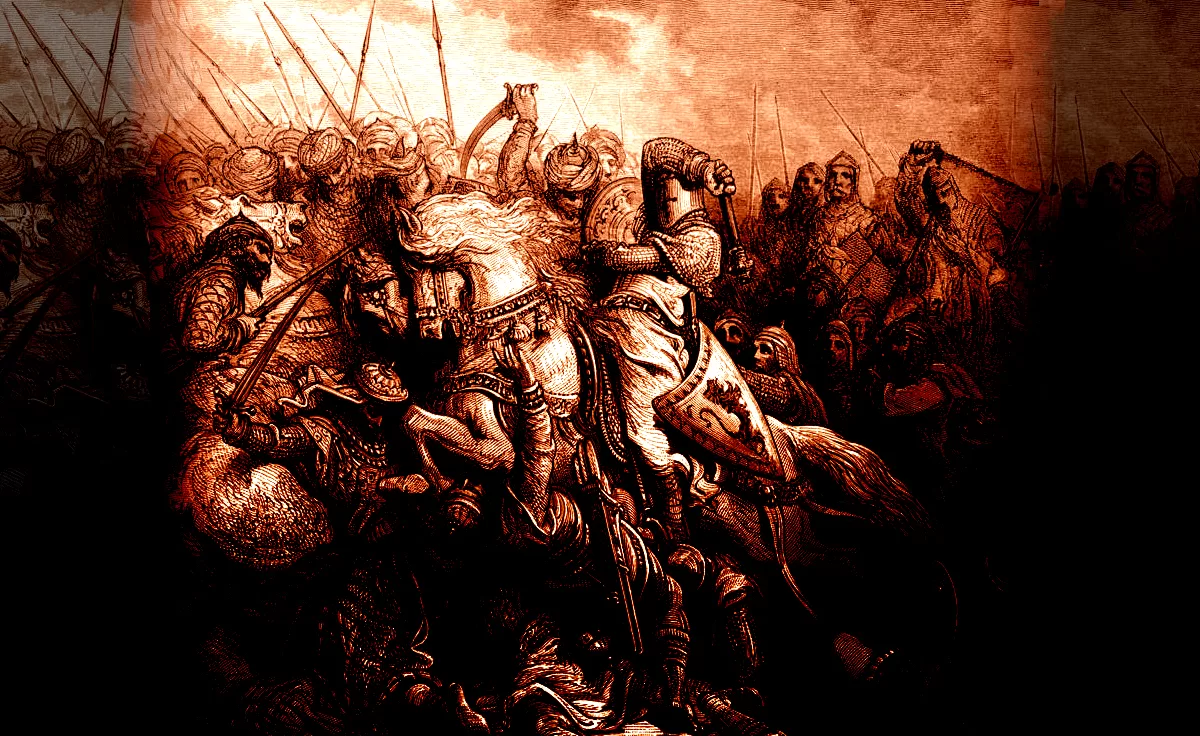


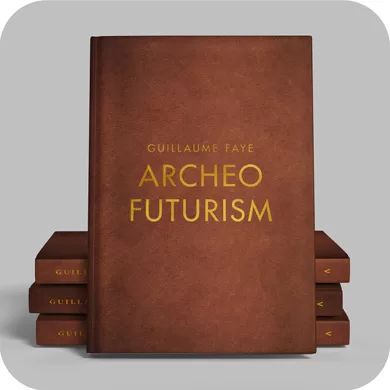
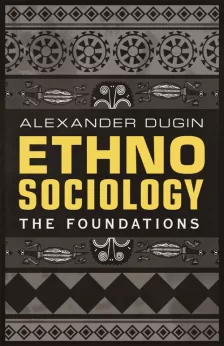

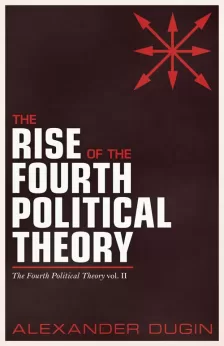
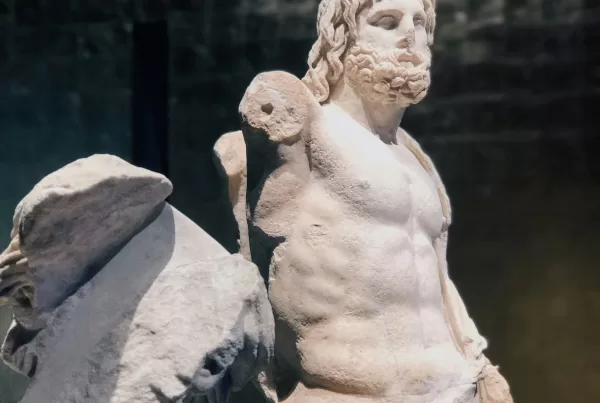
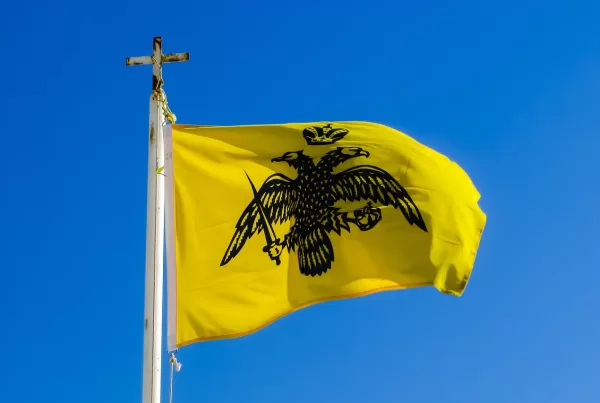
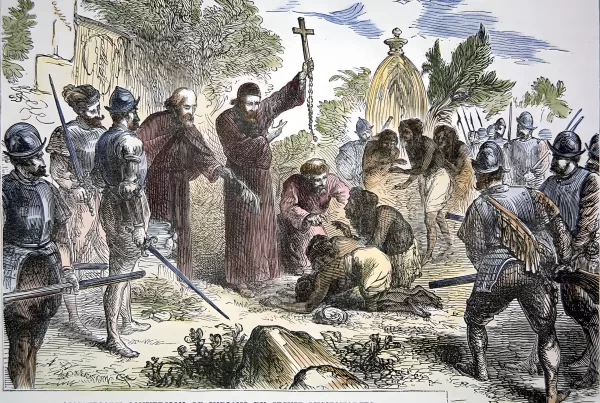
[…] xihttps://www.ilprimatonazionale.it/cultura/piano-kalergi-38849/. See also the article in Arktos Journal by Aetius: ‘European Resistance’. […]